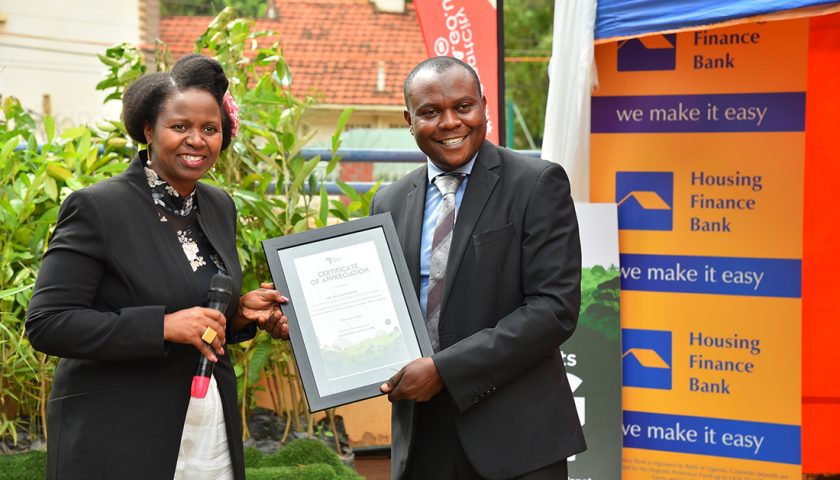Victoria University has been commended for putting in place a conducive environment and the readiness to roll out Open, Distance and e-learning (ODeL) Model of facilitating learning during the prevailing COVID-19 pandemic.
While addressing the media at Victoria University in Kampala, the Senior Presidential Advisor on ICT, Ham Mulira noted that it is so interesting that the University has for long been promoting technological studies through e-learning even the COVID-19 pandemic.
Mulira said that such early initiatives like giving each new student a laptop will provide them with ability to study away from the university during this lockdown period caused by corona virus.

He added that government through the National Council for Higher Education (NCHE) has come up with online/ distance learning guidelines for higher institutions of learning on how to use technology as a medium of communication to impart knowledge to students while they are away from school.
Victoria University Vice chancellor, Dr. Krishna Sharma noted that it is the responsibility of Universities and education institutions to foresee and come up with innovative ways to ensure they are not interrupted by any pandemic.
Dr. Sharma said that the university is ready to commence online teaching adding that all the issues raised in the guidelines by NCHE have already been in place at Victoria University.
He said the online classes will be conducted at free cost while those who will not be able will be provided with printed contents for self study.

The following are some of the guidelines that have been issued by the National Council for Higher Education (NCHE) to enable higher institutions of learning administer lessons to students:
- Evidence of the existence of COVID-9 Standard Operating Procedures (SOPs) as issued by the Ministry of Health.
- A structure and details of the proposed Open, Distance and e-learning (ODeL) model, including the equipment (e.g. flash discs, data provision), or the available logistical arrangements of how materials will be delivered to learners.
- A list of the accredited academic programmes to be rolled out on the ODeL system, since the guidelines will support the rolling out of only accredited academic programmes.
- A list of staff qualified and ready to support the rolling out of the academic programmes through the ODeL system.
- Details of the students to be engaged. This should include evidence of having traced them and a survey on the students readiness for the ODeL teaching and learning as well as the learning support technologies they have e.g. smartphones, laptops, and internet access.
- An undertaking by students indicating their willingness or inability to participate in the proposed arrangement.
- The strategy for covering the learning content missed during the lockdown.
- Evidence of approvals by the institutional respective organs i.e. Senate and Council.
- Principles and guidelines of how the ODeL system would run, including equity and quality assurance.
- Evidence of the mechanism of access and usage by the students and staff.
- Assurance of mainstreaming of disability and gender in all COVID-19 response recovery actions.
- A description of the pre-training of both the staff and learners to be offered prior to embarking on the ODeL system.




